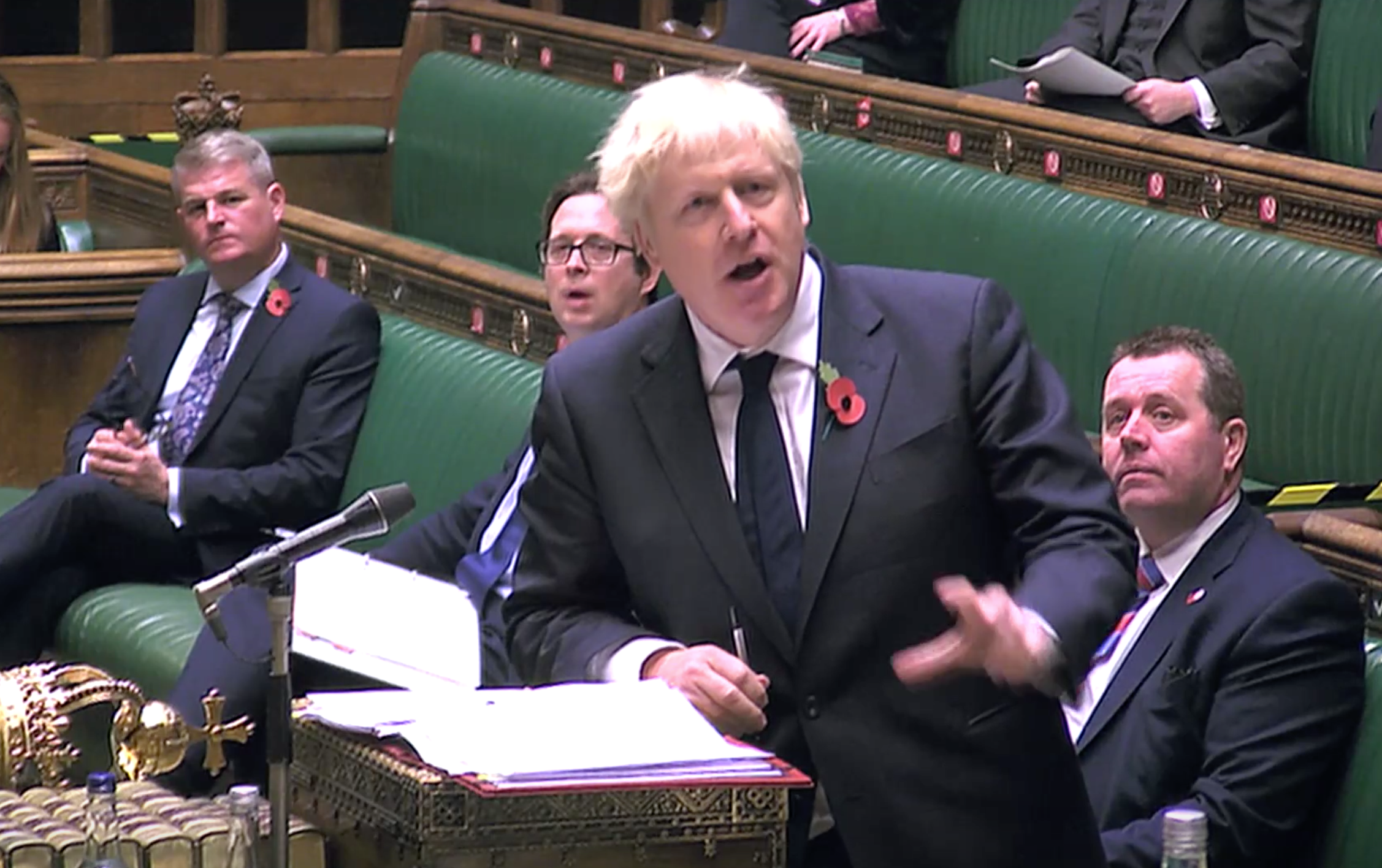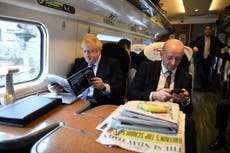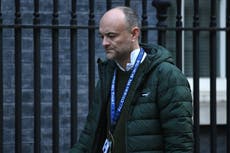Boris Johnson is safe from challengers for now – the vaccine news has changed the mood in Westminster
Last week there were rumblings of a leadership contest to unseat the prime minister; this week is different, writes John Rentoul


You can almost feel the air going out of parliament as people exhale with relief about the vaccine. Yes, there is a bit of a domestic going on in 10 Downing Street. But the announcement that one of the vaccines works and is likely to be available soon has already changed everything.
It is no use the prime minister suddenly giving up his boisterously optimistic addendums to serious policy announcements. Normally Boris Johnson desperately tries to cheer people up after announcing that, “alas”, he has to impose restrictions he really doesn’t want to impose, by saying there is a technological fix just around the corner and it will all be over one day.
This week, however, he had to try desperately to downplay the euphoria about the vaccine, as he and Jonathan Van-Tam, the deputy chief medical officer, solemnly warned people that it is too early to relax our strict adherence to the lockdown measures.
But people don’t think like that. One friend reported an argument in a shop on Tuesday: “I don’t have to wear a mask any more,” said a customer. “There’s a vaccine.” Before Monday, although we knew that Johnson was right, and that it would all be over one day, it didn’t feel like that. Now it does, and that takes the tension out of some of the big political debates.
Keir Starmer discovered that at Prime Minister’s Questions (PMQs) this week. His great triumph of calling for a lockdown before Johnson agreed he was right has evaporated: the timing of the lockdown mattered so much more when the virus was an unending threat. Starmer asked important questions about the waste of public money, but the only question people want the answer to is whether the government is competent enough to roll out the vaccine fast.
If it can, it may turn the tide of public opinion, which has been running against the prime minister and the government since the peak of “we’re all in it together” in March. Certainly, the mood among Conservative MPs has changed this week. They are still mutinous about the prime minister’s handling of the lockdown, and aghast at the disarray in No 10, but suddenly it feels as if they have forgotten why.
Before Rishi Sunak appeared at a meeting of the Tory backbench 1922 Committee on Wednesday night, some MPs were describing it as a job interview for the vacancy soon to be opening up in No 10. But when the meeting happened, it was very much “ask the chancellor” rather than a leadership rally. Sunak was pressed by many of those MPs who voted against the lockdown last week to provide the Treasury’s economic assessment of the costs of shutting down pubs, restaurants and “inessential” shops. He obligingly said he would publish what he could, but it seemed more like a debate about recent history than a live argument about the future.
The privations of the lockdown seem less serious now that there is light at the end of the tunnel.
Last week there was talk in Westminster of letters from Tory MPs to Sir Graham Brady, chair of the 1922 Committee, asking for a leadership election. I spoke to MPs, who said things like, “I don’t think Boris is enjoying it,” or “Dominic Raab has been suspiciously absent from the media of late,” or “The dark horse is Jeremy Hunt.” This week they are all fascinated by the Lee Cain business, but mostly in the context of Johnson being prime minister for some time to come.
The vaccine means it is suddenly possible to wonder what politics will be like when things return to something more like normal. There will be a lot of elections next year. The Scottish parliament; the Welsh assembly (Northern Ireland is not scheduled until 2022), the mayor of London, the mayor of Greater Manchester, and a double crop of local councils. In many cases, there is likely to be a boost for incumbents who everywhere except 10 Downing Street are thought to have handled the virus well – even though the policies in Scotland and Wales have not been much different from those in England.
If Johnson can claim credit for a successful vaccination programme, the Conservatives may be able to hold their own. But by the time of the next general election, coronavirus will probably be virtually forgotten. Who knows what will fill the gap left by Brexit and coronavirus, the “total news stories” that have dominated the last four years of our lives.
Join our commenting forum
Join thought-provoking conversations, follow other Independent readers and see their replies
Comments


Bookmark popover
Removed from bookmarks